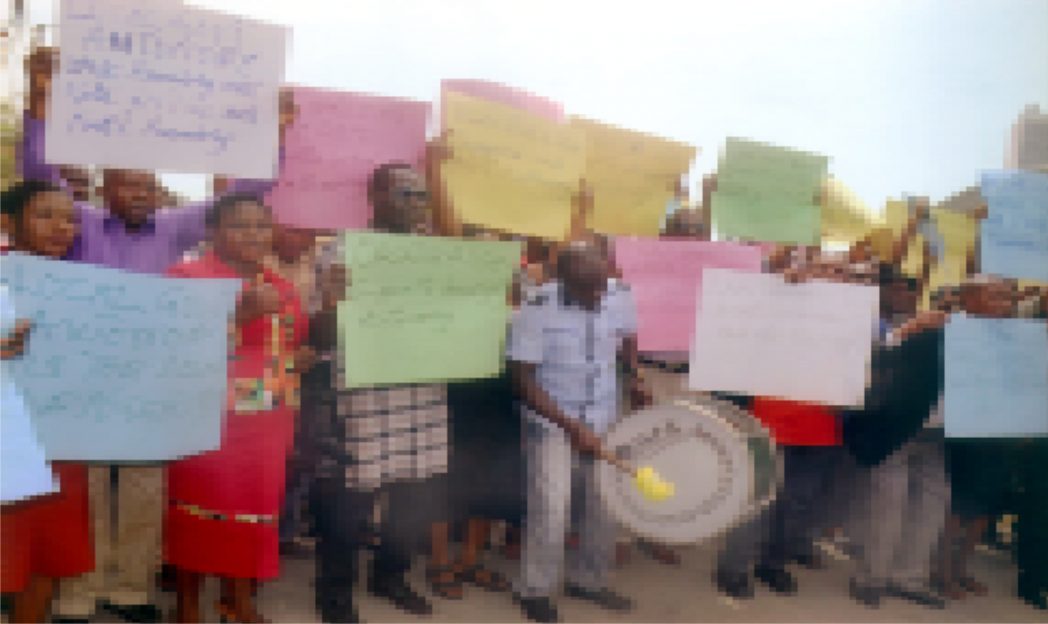Business
Minister Tasks NDIC On Depositors’ Protection

Members of NULGE, Rivers State on protest to the Rivers State House of Assembly on the House support to the Local Government Autonomy in the Nigerian Constiution amendment. Photo: Chris Monyanaga
The Minister of State for FCT, Mr Bashir Yuguda, has called on the Nigerian Deposit Insurance Corporation (NDIC) to ensure continued depositors’ protection and sound financial system in Nigeria.
Yuguda made the call during the NDIC’s 25th anniversary gala night on Friday in Abuja.
According to him, the NDIC must ensure that they put in place proactive mechanisms to ensure continued depositors protection, safe and sound financial system.
Yuguda said that the falling oil price and devaluation of the naira in Nigeria was already having effect on the 2015 budget.
He said that Nigerians should come together to support the government in ensuring that the situation was contained to a minimal effect.
“It is unfortunate to note that the falling oil price has already begun to take a toll on us and the value of the naira battling to remain at a reasonable level.
“It is therefore our collective responsibility to support government and all its agencies involved.
“This is to ensure that the current situation is contained with minimal effect to the welfare of the generality of our people,” he said.
He called on the NDIC as well as other regulators to always rise up to the various challenges faced by the country.
Yuguda commended the corporation on the awards, saying it was a testament to NDIC’s commitment to excellence in the discharge of its mandate and roles as deposit insurer.
The Chairman of NDIC Board, Dr Hassan Adamu, said the corporation had risen to the various banking crises and had striven to keep abreast with the core principles of deposit insurance sector.
Adamu said that the various awards received by the NDIC had shown that the high performance by the corporation had been recognised not just locally but internationally.
He urged the staff of the corporation to rededicate themselves toward achieving NDIC ‘s mandate.
The Chairman, House Committee on Finance, Mr. Jones Onyereri said that NDIC had played a very critical role in the economy of Nigeria and it would continue to do so.
“The role played by NDIC in the last financial crises cannot be overemphasised and we as a nation are grateful to it for rising up to the challenge at that time,” he said.
He said that the National Assembly was in the process of passing a new NDIC act which would allow the corporation to be more proactive in their duties.
He said that the NDIC Amendment Bill 2014 allowed them to participate actively with the CBN in monitoring the status of insured depositors in other to minimise failure of insured institutions.
On changes in the financial institutions, especially in the banking sector and risk profiles of banks and technology development, Onyereri said it was imperative that enabling laws of regulatory institutions be reviewed regularly.
Earlier, the Managing Director, NDIC, Alhaji Umaru Ibrahim, said the NDIC would continue to do its best to discharge their mandate so that the banking sector would continue to strive.
He commended the efforts of the people present at the dinner and the staff of NDIC on their cooperation toward moving the corporation forward.
The event was also attended by dignitaries and stakeholders in the banking sector.

